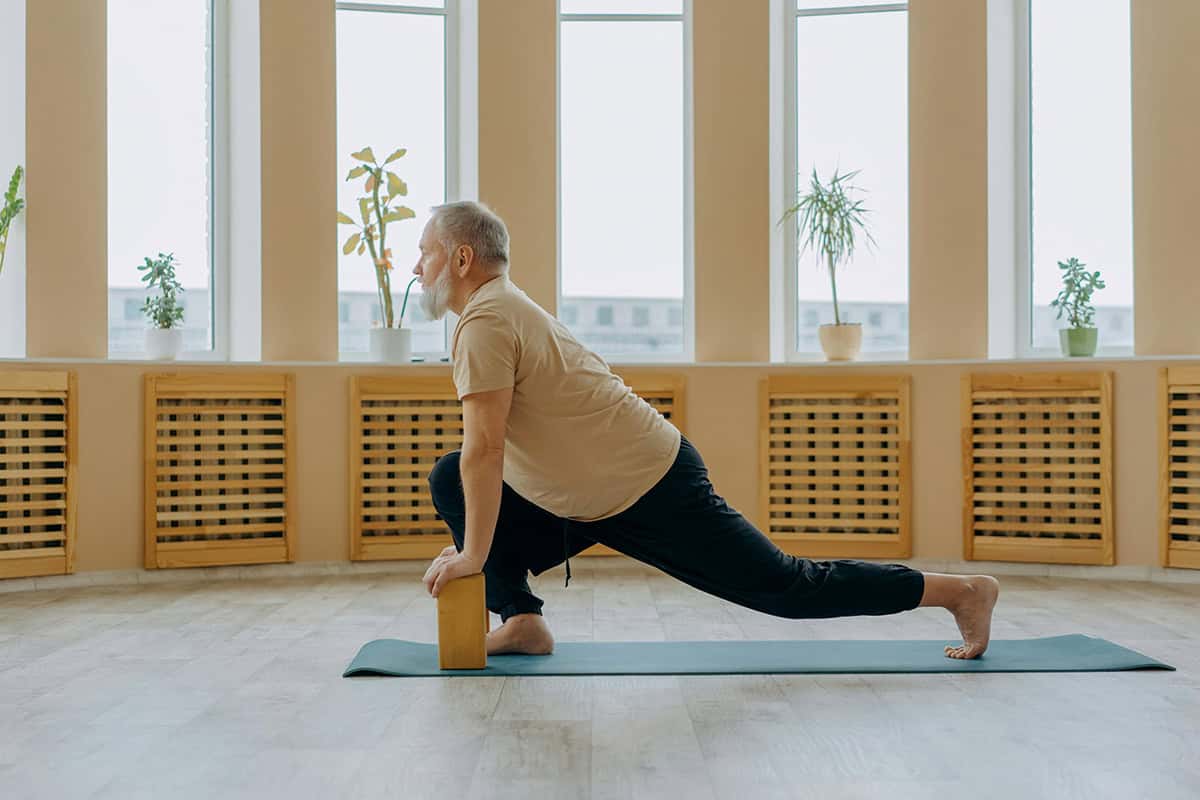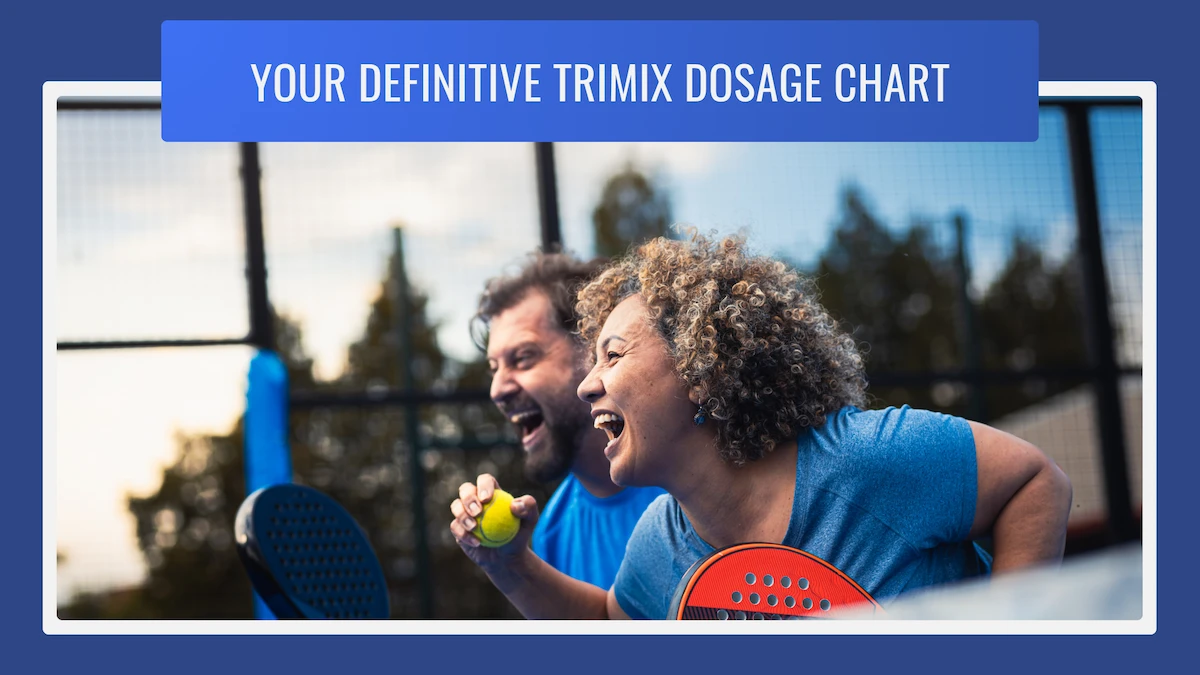As we age, our bodies change — it’s only natural. While there are some changes we look forward to, most men don’t look forward to a common medical condition associated with aging: erectile dysfunction (ED). This condition occurs when you can’t maintain a firm enough erection for sexual intercourse, and it affects over 30 million men in the United States. While ED occurs more frequently among men over 40, it is also closely tied to underlying health conditions, lifestyle factors, or medication side effects — many of which you can manage with the right approach.
In this guide, we’ll explore these causes more, explain how age contributes to ED, and discuss what you can do about it. Even if aging is a way of life, you don’t have to let ED contribute to it.
How Aging Affects Sexual Health
Aging brings many changes to the body, and sexual health is no exception. While some men maintain a strong libido and sexual function well into their later years, others experience challenges such as reduced desire, difficulty achieving or maintaining an erection, and changes in stamina. These changes primarily occur due to hormonal changes. For example, as men age, their testosterone levels decline — the hormone responsible for their libido, muscle mass, energy levels, and erectile function. Every year after 40, the average man’s testosterone levels drop by 1%. While this may seem small, it can make a big difference over time. By 70, most men’s testosterone levels are at least 30% below their peak.
In addition, your risk of developing many medical conditions, such as cardiovascular disease, diabetes, prostate cancer, and obesity, can worsen as you age, which can also significantly impact your sexual health and libido. If you find that your sex drive has gone down, it may not only be just an indicator of ED — it could be an indicator of a serious illness.
Just like your physical health, your mental health is also closely tied to your sex drive. According to the World Health Organization, over 14% of adults over 60 have a mental health disorder, most commonly anxiety and depression. Both of these conditions can affect your libido, along with dementia — one of the more common neurological disorders among older adults.
The Connection Between Aging and ED
While ED is more common among older men due to lowered testosterone, it’s also closely tied to medical conditions and lifestyle choices of older men.
How Heart Health Affects ED
Good heart health and reliable erectile function are highly tied together because they rely on consistent blood flow. If it’s challenging to maintain an erection, it could be an indication of the following heart health conditions:
- Atherosclerosis (narrowed arteries): This condition is when plaque builds in your arteries to the point that it prevents blood from flowing freely throughout the body, including to the penis, making erections more challenging to achieve.
- High blood pressure (hypertension): Increased pressure in blood vessels can damage the arteries, reducing their ability to expand properly for sufficient blood flow.
- Heart disease: Conditions that weaken the heart’s ability to pump blood efficiently can limit circulation to extremities, leading to erectile difficulties.
According to a study conducted by the American Heart Association, men who have ED are twice as likely to die from a heart attack, cardiac arrest, or a stroke — all of which can occur due to neglecting to treat the conditions listed above. While you may want to avoid sensitive subjects like ED with your provider, it is essential because they can then check for any markers that may indicate a serious heart health condition. Your life depends on it.
Diabetes and Nerve Damage
For an erection to occur, the nervous system must send signals to the blood vessels in the penis, triggering increased blood flow. Diabetes can disrupt this process by restricting blood flow through narrowing and hardening blood vessels and damaging the nerves responsible for sending signals for an erection. This means even if you have an average or more than average amount of testosterone, you’ll experience ED if you also have diabetes.
Medications and Health Conditions
As you age, you’ll likely experience age-related health conditions like high blood pressure, chronic pain, and other mental health conditions. It’s only natural to take medication for treatment. However, many medications for these conditions can cause ED, such as:
- Blood pressure medication;
- Antidepressants and anxiety medication;
- Prostate and hormone-related medications;
- Antihistamines for heartburn;
- Painkillers.
If your medications are causing ED, talk to your doctor before making any changes. They’ll be able to find alternatives that can still treat your medical condition without causing side effects like ED. In addition, other diseases beyond diabetes and cardiovascular conditions can also contribute to ED, such as:
- Obesity: People with high BMIs are more likely to have lower testosterone levels and vascular problems that contribute to ED.
- Low testosterone (hypogonadism): Decreased hormone levels can reduce libido and affect erection strength.
- Neurological disorders: Conditions such as Parkinson’s disease, multiple sclerosis (MS), and stroke can interfere with nerve signals necessary for arousal.
- Chronic kidney disease and liver disease: These conditions can disrupt hormone balance and circulation, increasing the likelihood of ED.
- Sleep apnea: Poor sleep quality and reduced oxygen levels can lower testosterone and impact vascular function
Ultimately, any condition that affects your circulation, nerve functions, and hormone levels has the potential to cause ED.
Lifestyle Changes to Support Sexual Health
Even though it may feel like there are so many factors stacked against you in your battle with ED, there are ways you can combat it. Sometimes, it can be as simple as lifestyle changes to improve overall well-being.
Diet and Nutrition
A well-balanced diet can help maintain testosterone levels, support heart health, and reduce the risk of conditions like obesity and diabetes that contribute to erectile dysfunction (ED). When planning out your meals, prioritize these nutrients:
- Healthy fats: Healthy fats, known as unsaturated fats, can help lower your risk of developing cholesterol, and they can also boost testosterone production. Foods like avocados, nuts, seeds, olive oil, and salmon have healthy fats.
- Lean proteins: Lean proteins help build muscle and support hormone balance. Eat foods like eggs, chicken, lean beef, and plant-based sources like lentils and tofu.
- Zinc-rich foods: Zinc helps your body produce testosterone and maintains sperm health. Oysters, shellfish, pumpkin seeds, spinach, and beef all contain zinc.
- Magnesium-rich foods: Magnesium supports testosterone levels and muscle function. Eat more dark leafy greens (spinach, kale), almonds, cashews, and dark chocolate to raise magnesium levels.
- Vitamin D sources: A deficiency in vitamin D is linked to low testosterone. To avoid this, eat more fatty fish, egg yolks, fortified dairy products, and exposure to sunlight.
- Nitric oxide boosters: Foods like beets, grapes, and leafy greens can improve blood circulation, which is essential for erectile function.
In addition to adding certain foods to your diet, you should also avoid certain foods that increase your risk of developing medical conditions associated with ED. For example, eating processed foods high in trans fats and refined sugars can cause spikes in blood sugar and increase your risk of developing Type 2 diabetes and obesity. Likewise, alcohol may be nice on occasion, but drinking it excessively can reduce your testosterone production, which will then lead to ED.
Exercise
Regular exercise can reduce ED in several ways. For one, aerobic exercise, such as running, can improve cardiovascular health and circulation. To achieve the best results, do 150 minutes of moderate aerobic exercise per week or 75 minutes of vigorous exercise to achieve the best results.
In addition, pelvic floor exercises, such as Kegels or core-strengthening pilates, can help strengthen the muscles surrounding the pelvis, helping you maintain erections. Kegels, in particular, have been shown to improve erectile function in countless studies.

Get Better Sleep
When you sleep, you let your body regulate itself. The less sleep you get, the less your body can regulate itself, including your hormones. Poor sleep habits can contribute to low energy, reduced libido, and an increased risk of erectile dysfunction (ED). One 2022 study found that men who slept less also had lower levels of testosterone throughout the day, affecting their sexual performance and desire.
To improve your sleep and promote your testosterone levels, you should:
- Aim for 7–9 hours per night: Consistently getting enough sleep helps regulate hormones and restore energy levels.
- Stick to a sleep schedule: Going to bed and waking up at the same time every day improves sleep quality and hormone balance.
- Limit screen time before bed: Blue light from phones and TVs can interfere with melatonin production, making it harder to fall asleep.
- Reduce alcohol and caffeine intake: Both can disrupt sleep cycles and affect hormone regulation.
- Create a relaxing nighttime routine: Reading, deep breathing, or a warm bath can put you in the mindset to rest.
- Address sleep disorders: Conditions like sleep apnea, which is common in older men, can lower oxygen levels and disrupt testosterone production. If you frequently wake up tired or experience snoring and breathing issues, talk to a doctor about potential treatments.
These tips will help you sleep better at night, improve your sleep hygiene, and reduce your likelihood of developing ED.
Managing Stress and Anxiety
Your mental health and ED can be a self-perpetuating cycle. Not only can stress and anxiety affect how your brain signals to the nerves in your penis to allow extra blood flow, but ED itself can cause you to feel anxious, causing even more instances of ED. If you have chronic stress, you’ll also affect the testosterone levels in your body, causing low libido. Chronic stress can also increase your risk of developing heart disease and stroke.
As such, you should find ways to decrease your stress and anxiety:
- Practice mindfulness and meditation: Deep breathing exercises and other techniques can help reduce anxiety
- Prioritize self-care: Engaging in hobbies, spending time with loved ones, and getting outside can help alleviate stress.
- Improve time management: Reducing workload and setting realistic goals can decrease stress.
- Seek social support: Talking with a trusted friend, partner, or support group can help manage emotional stress.
- Reach out to a mental health professional: If your stress or anxiety becomes overwhelming, a therapist can provide tools to manage it.
- Utilize ED treatment: If you’re already experiencing ED, you can reduce any stress you have over the condition by seeking treatment for it.
By addressing both physical and emotional factors behind your stress, you can regain confidence and improve your sexual health in meaningful ways.









